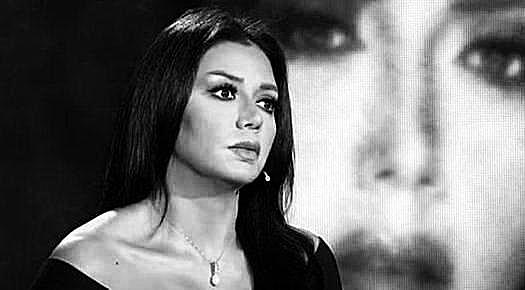
Photo Credit: Al Arabiya
CAIRO - Traditional gender roles in Egypt are prevalent and clearly defined. Most Egyptian women have experienced some form of sexual harassment. Gender roles are based on assumed biological differences between the sexes and can lead to dramatically different life experiences as well as opportunities and outcomes for individuals. Consequently, when looking at a number of indicators, women often find themselves disadvantaged relative to men.
Gender inequality exists in Egypt and the appearance at the film Cairo festival can lead you to imprisonment, especially if you are a woman who dares to appear in a transparent dress. Actually, Egyptian actress Rania Youssef, known for Wahed Saheh (2011), appeared in a lacy, black, dress that exposed most of her legs at the Cairo International Film Festival. The problem is that her outfit outraged many Egyptians and she could have been jailed for up to five years if found guilty, a judicial source told AFP.
As ABC7 reports, the initial complaint against Youssef was filed by a group of lawyers with a reputation for moral vigilantism but they said they withdrew their complaint on Tuesday. The complaint against her was filed by two lawyers, Amro Abdelsalam and Samir Sabri, who are known for taking celebrities to court. Ms Youssef's appearance "did not meet societal values, traditions and morals and therefore undermined the reputation of the festival and the reputation of Egyptian women in particular," Mr Sabri told AFP.
Luckily, the charges towards Rania Youssef have been dropped. According to Vogue, the charges against Rania Youssef were dropped after a public outcry on social media. She was expected to appear in court next month after a group of lawyers filed a complaint about her “revealing” dress. However, the same group of lawyers stated their actions were not intentional and dropped the charges after she apologized on social media. “When we took legal action, this was not for the purpose of personal gains or benefits, nor was it intended to deprive her person, but was out of concern for public order and ethics and sensing the danger facing the Egyptian society as a result of that incident, committed by a popular public figure with an audience that will try to imitate them, which may lead to the spread of chaos and the violation of standards of values and ethics.”
The 44-year-old said she would not have worn the dress if she had known it would cause such controversy. "It was the first time that I wore it and I did not realise it would spark so much anger," she said. "I reaffirm my commitment to the values upon which we were raised in Egyptian society," she added.
Sadly, this isn’t the first case where society punishes women because men didn’t like what they said or wore. As BBC reports, last year an Egyptian court jailed singer Shaimaa Ahmed for two years — later reduced to a year — for appearing in a music video in her underwear while suggestively eating a banana.
Meanwhile in January prosecutors detained another singer, Laila Amer, after her music video sparked controversy by showing her dancing and making suggestive gestures.
The Actor’s Guild of Egypt also released a statement in reference to the controversial dress and said each individual is entitled to self-expression but will take action for “offensive” attire. “Although we absolutely believe in the personal freedom of artists, we appeal to everyone to shoulder their responsibilities toward the fans who appreciate their art and view them as role models. That should compel them to exercise a minimum level of commitment to society’s public values.”
